Preparation of ethers by acid dehydration of secondary or tertiary alcohols is not a suitable method. Give reason.
Acid-catalysed dehydratrion of 1∘ alcohols to ethers occurs by SN2 reaction involving nucleophilic attack by the alcohol molecule on the protonated alcohol molecule.

Under these conditions, 2∘ and 3∘ alcohols, however, give alkenes rathenes than ethers. The reason being that due, to steric hindrance, nucleophilic attack by the alcohol molecule on the protonatedc alcohol molecule does not occur. Insted protonated 2∘ and 3∘ alcohols lose a molecule of water form stable 2∘ and 3∘ carbocations. These carbonations prefer to lose a proton to form alkenes rather than undergoing nucleophilic attack by alcohol molecules to form ethers.
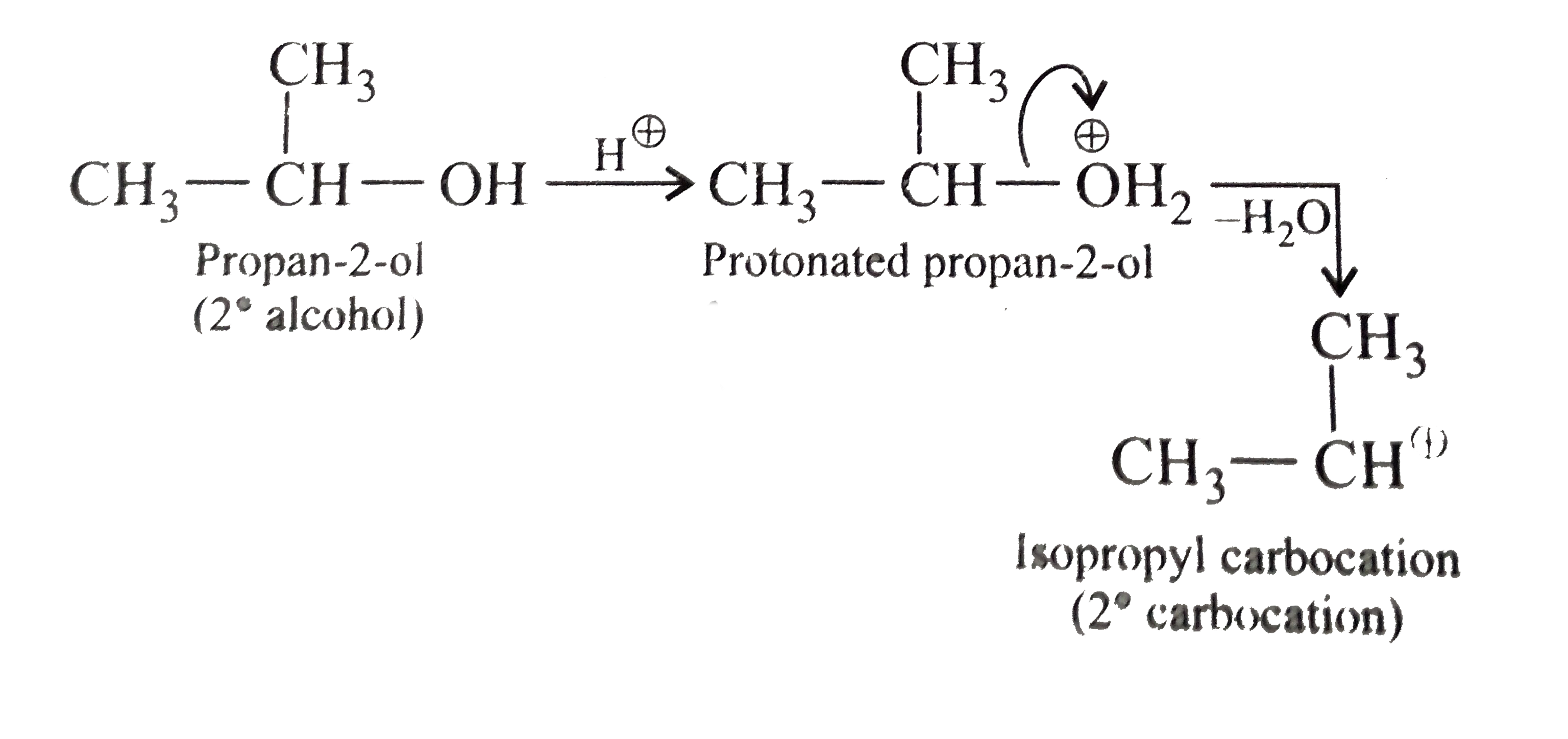
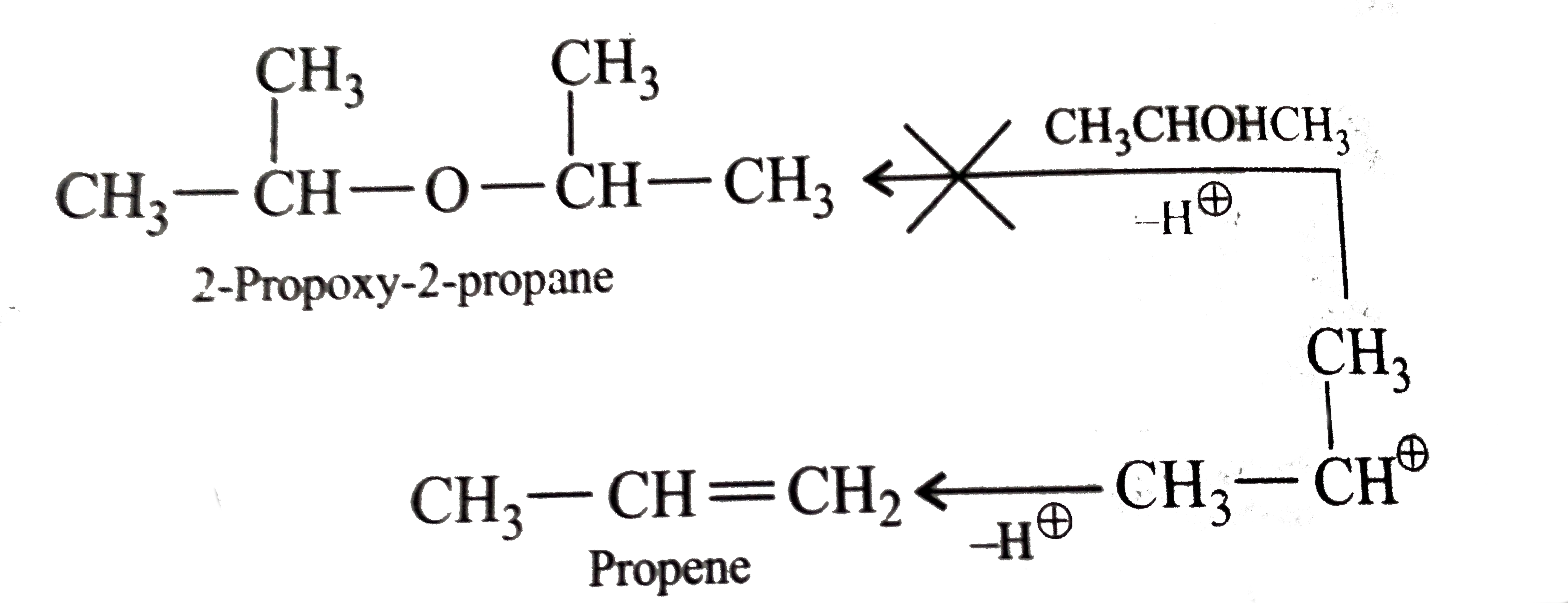
Similarly, 3∘ alcohols give alkenes rather than ethers.
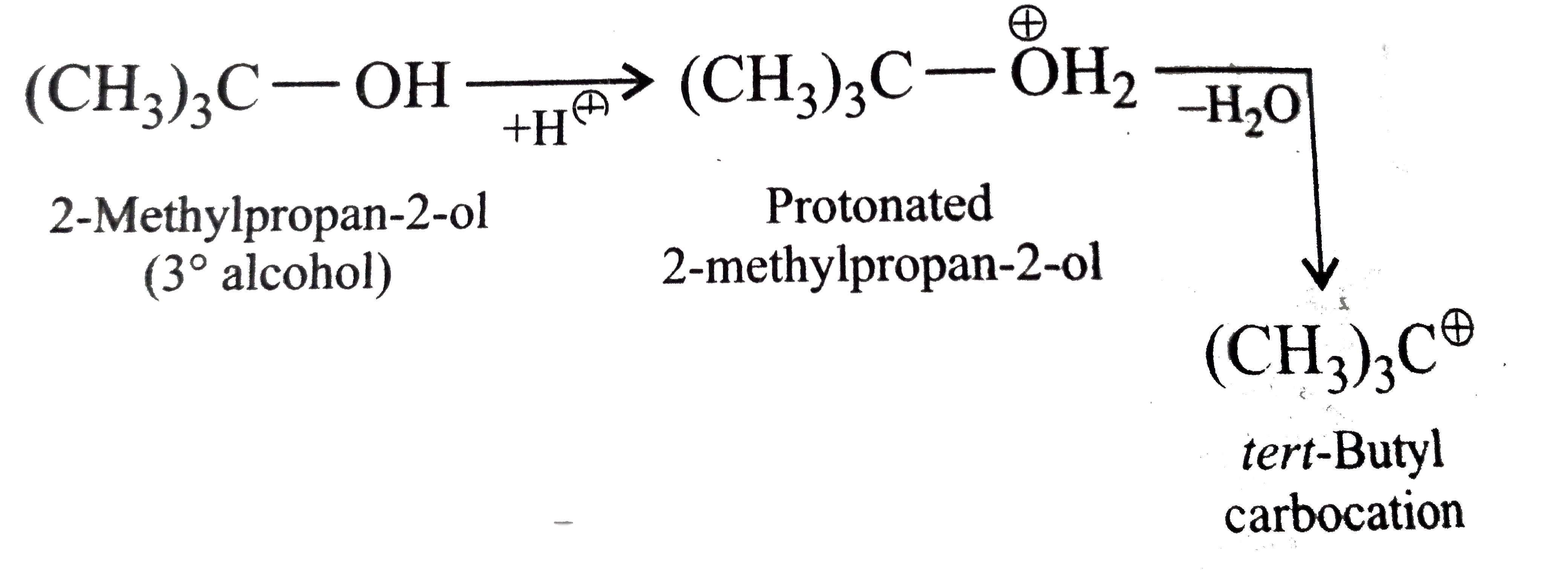
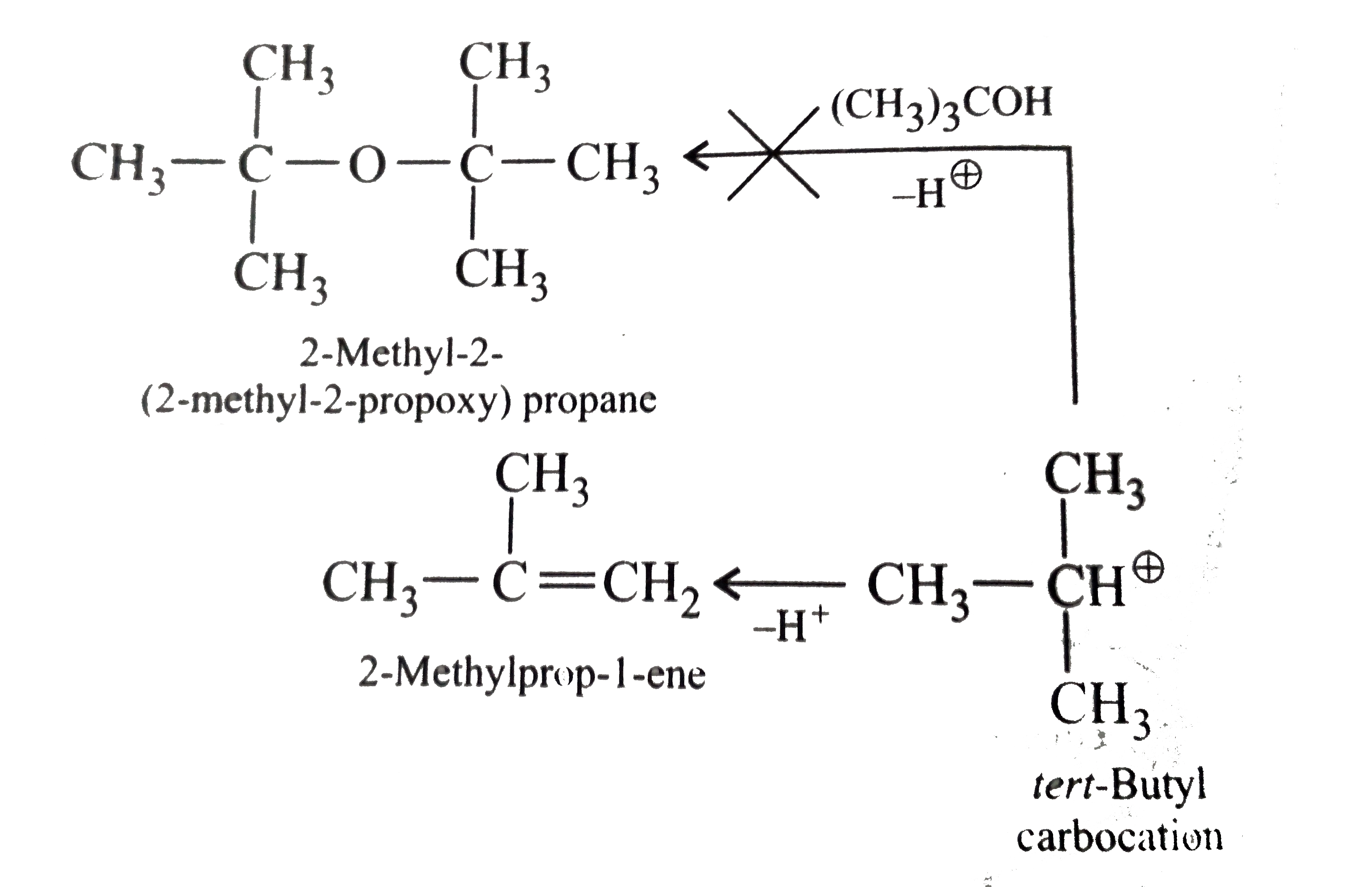
Topper's Solved these Questions
- ALCOHOL,PHENOL AND ETHERSBOOK - CENGAGE CHEMISTRY ENGLISHCHAPTER - ALCOHOL,PHENOL AND ETHERSEXERCISE - Exercises Linked Comprehension
60 Videos
- ALCOHOL,PHENOL AND ETHERSBOOK - CENGAGE CHEMISTRY ENGLISHCHAPTER - ALCOHOL,PHENOL AND ETHERSEXERCISE - Exercises Multiple Correct
24 Videos
- ALCOHOL,PHENOL AND ETHERSBOOK - CENGAGE CHEMISTRY ENGLISHCHAPTER - ALCOHOL,PHENOL AND ETHERSEXERCISE - Exercises Subjective
25 Videos
- ALIPHATIC AND AROMATIC ALDEHYDES AND KETONESBOOK - CENGAGE CHEMISTRY ENGLISHCHAPTER - ALIPHATIC AND AROMATIC ALDEHYDES AND KETONESEXERCISE - Archives Subjective
26 Videos
Similar Questions
Preparation of ethers by acid dehydration of secondary or tetiary alcohols is not a suitable method. Give reason.
View SolutionWhat is the order of dehydration of primary, secondary and tertiary alcohols?
View SolutionPrimary , secondary and tertiary alcohols can be distinguished hy
View SolutionAcidic dehydration of the following alcohols is in the order :
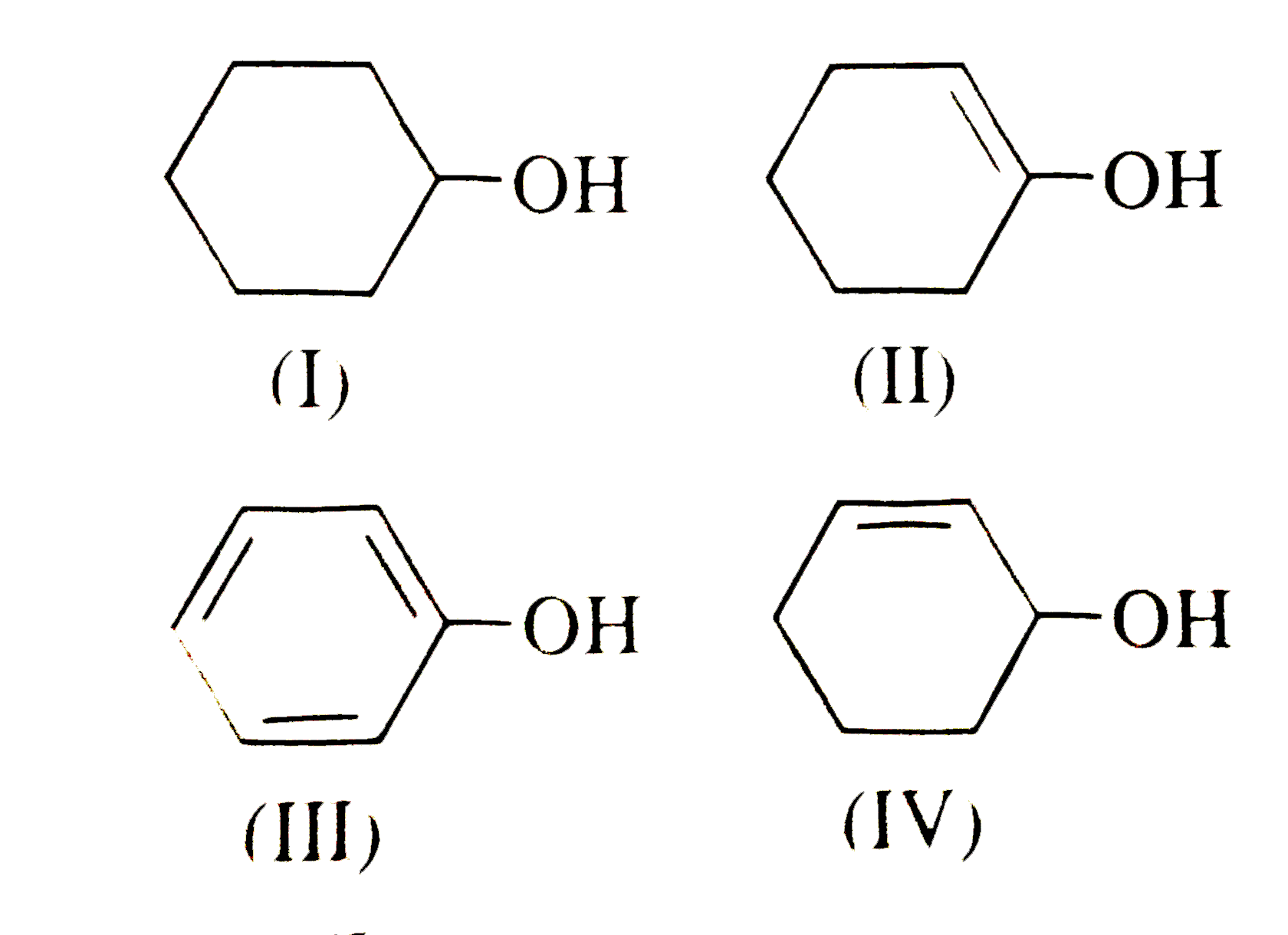
View SolutionAlcohols undergo acid catalysed elimination reactions to produce alkenes. Because water is lost in the elimination , this reaction is called dehydration reaction. Secondary and tertiary alcohols always give E1 reaction in dehydration. Primary alcohols whose β-carbon is branched also give E1 reaction. The reactivity of alcohol for elimination reaction is tertiary alcohol > secondary alcohol > Primary alcohol.
Which of the following dehydration product (major ) is incorrect ?
View SolutionAlcohols undergo acid catalysed elimination reactions to produce alkenes. Because water is lost in the elimination , this reaction is called dehydration reaction. Secondary and tertiary alcohols always give E1 reaction in dehydration. Primary alcohols whose β-carbon is branched also give E1 reaction. The reactivity of alcohol for elimination reaction is tertiary alcohol gt secondary school gt Primary alcohol.
Identify the product in the given reaction :
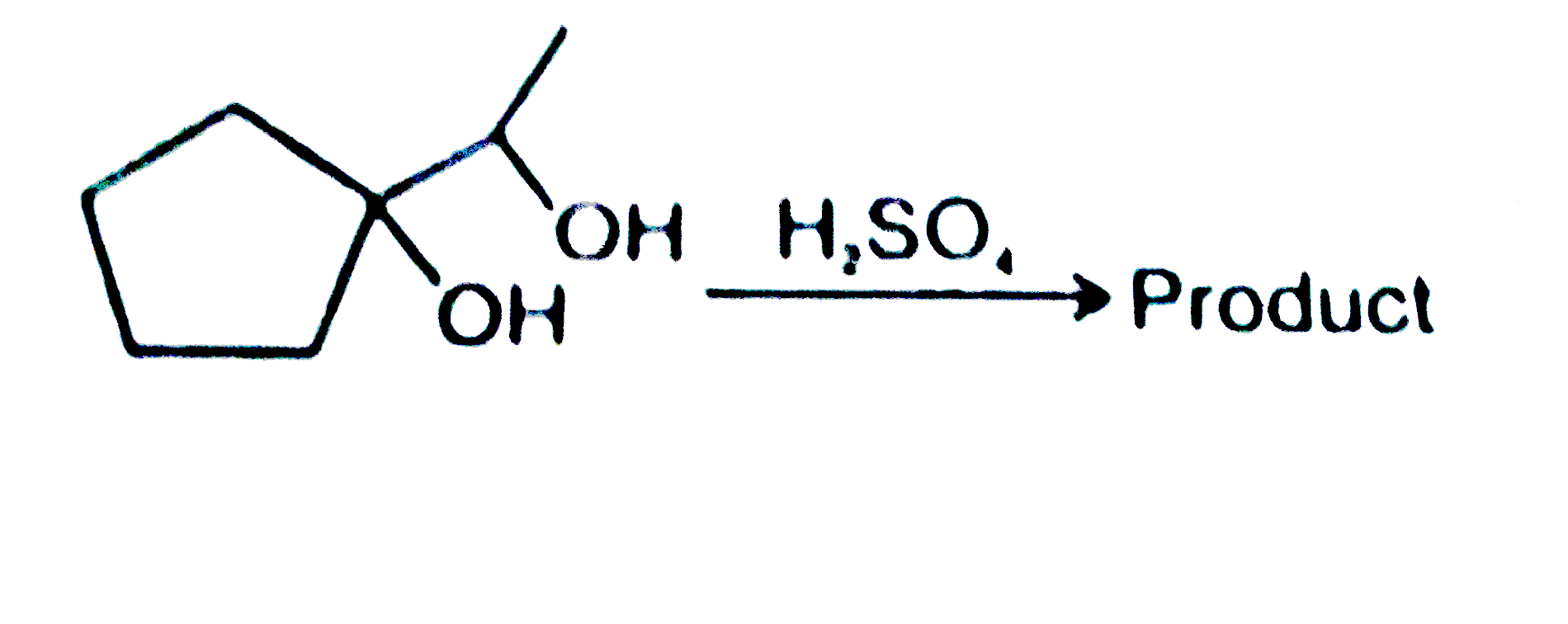
View SolutionOrder of boiling point among primary , secondary and tertiary alcohols is :
View SolutionOut of the primary, secondary and tertiary alcohols, which one is resistant to oxidation ?
View SolutionThe acidic dehydration method is not souitble for converting a tertiary alcohol into ether. Justify.
View SolutionConversion of Acetic acid to acetone and tertiary butyl alcohol
View Solution
